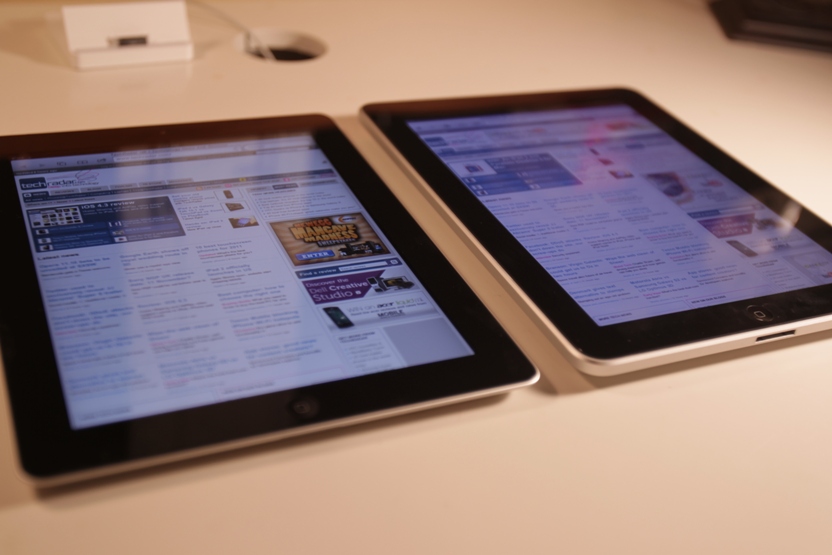How iPad 3 can fulfil Apple's 'post-PC device' promise
Can an iPad really replace your desktop PC or laptop?

A revolution is happening in the consumer technology world - the PC is slowly, but inexorably, being replaced by the tablet.
It doesn't seem to be a question of if a tablet can replace a conventional computer, but rather how long it'll be before PCs are in the minority in both the home and workplace.
The battle for the home computer started off as a war between Mac, Windows and Linux, then it became all about browsers (anyone remember Netscape?) but now it's between which mobile OS is going to win out when the dust finally settles.
And while Apple may have stuffed it up royally the first time around and let Microsoft steal all the glory, it now looks like it's been playing the long game after all, and this time round its holding all the cards.
At the recent launch of the iPad 2, you'd have had to have been half asleep not to notice that Steve Jobs kept referring to the iPad, and other competing tablets, as post-PC devices.
And while we're not in complete agreement with his Steveness quite yet (at the moment you still need to connect your new iPad to a PC or a Mac before you can do anything with it, for example) you'd need to have had your head in a box Se7en-style for the last year to not realise what an impact the iPad has had on the PC industry.
The momentum in the market is certainly with tablets at the moment. Apple sold 15 million iPads in 2010, making it one of the most successful consumer technology launches ever, and certainly not bad for a device that nobody was sure they actually needed when it launched.
Sign up for breaking news, reviews, opinion, top tech deals, and more.
At the launch of the iPad 2 in March this year Apple claimed it had secured 90% of the tablet market in 2010, although that is expected to drop dramatically this year as tablets from HP, Samsung, RIM and others emerge. Tablets we're especially excited about are the Motorola Xoom, Galaxy Tab 10.1 and the HP TouchPad.
Already happening
Of course, all this "post-PC device" talk is just Apple doing what it does best: defining a conversation that is already taking place and adding a bit of spin to make it seem like it thought of the idea first. It's developers that first realised what was happening; after all they only need to compare their revenues from mobile apps to desktop apps to see where the future of computing is headed.
"The last 30 years belonged to desktop computers with keyboards and mice. The next 30 years will belong to the tablet form factor and our fingertips," Craig Hockenberry of the IconFactory, developers of Twitterific, one of the iPad's leading Twitter clients, tells TechRadar.
It's hard to deny that Apple has got a hell of a head start, and the iPad 2 put is even further ahead. Interest in iPad 2 is far outstripping rival tablets in Google search terms, and our own TechRadar poll predicts massive iPad 2 sales for Apple.
Strangely, for a company that has a history of offering premium products at a premium price, Apple is actually the one to beat when it comes to value in the tablet market. Competitors are finding it hard to compete with Apple's huge corporate buying power on prices for screens, memory and processors, making it almost impossible for them to match the iPad on price.
Then there's the development community who, despite grumbles over Apple's often bizarre app approval process, have all brought into iOS hook line and sinker, mainly because iPhone and iPad owners seem happy to part with money for apps. There are currently over 65,000 apps specifically designed for the iPad - many more than there are for other platforms.

Graham is the Senior Editor for AI at TechRadar. With over 25 years of experience in both online and print journalism, Graham has worked for various market-leading tech brands including Computeractive, PC Pro, iMore, MacFormat, Mac|Life, Maximum PC, and more. He specializes in reporting on everything to do with AI and has appeared on BBC TV shows like BBC One Breakfast and on Radio 4 commenting on the latest trends in tech. Graham has an honors degree in Computer Science and spends his spare time podcasting and blogging.